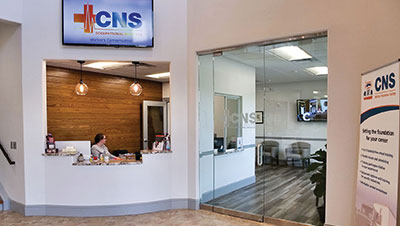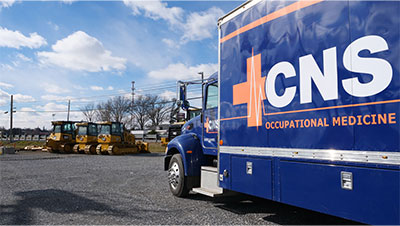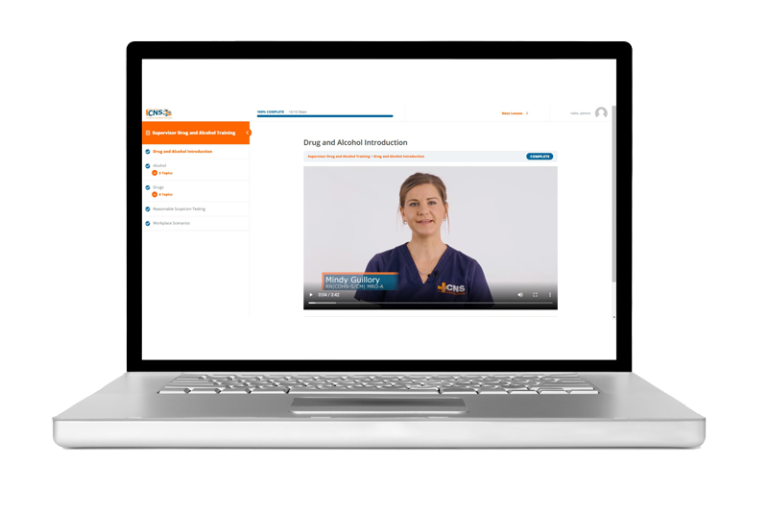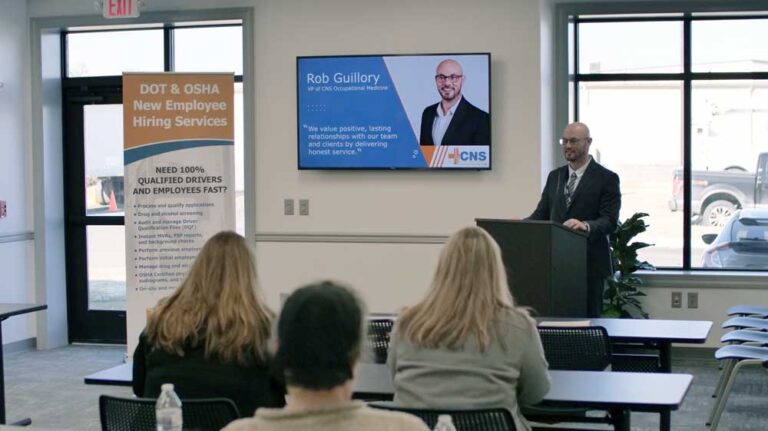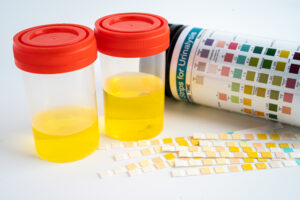An MRO determines if there is a legitimate medical explanation for laboratory confirmed positive, adulterated, substituted and invalid drug test results.
If your company has a drug testing program, you may have experienced drug testing result delays for your employee’s pre-employment or random drug test.
There are many ways these delays can happen from the collection site to the laboratory process.
But there is one last touch point that can further add delays, and this involves the Medical Review Officer or MRO.
What is the Drug Testing Process?
No matter if your company is required to be a part of a federal or DOT drug testing program or you are focused on keeping your employees healthy and productive, there are three steps a drug testing specimen goes through.
These steps are:
- Collection site
- Laboratory testing
- Medical Review Officer (MRO) review
Collection sites, like at our CNS office locations, is where an employee can give a drug test sample (whether by urine, oral saliva, or hair test), receive a medical exam, physical, or more. Once the donor provides a sample, it is quickly sent to a drug testing lab for testing.
Laboratories receive thousands of specimens each night from couriers and lab technicians, review all chain of custody forms to make sure each chain does not have missing information, and perform a Gas Chromatography – Mass Spectrometry (GCMS) test on samples with trace amounts of drugs during the initial screen.
If a positive test is affirmed, the results are sent to a Medical Review Officer (MRO).
What is an MRO?
An MRO or Medical Review Officer is a licensed physician, certified by the American Association of Medical Review Officers or the Medical Review Officer Certification Council.
They are responsible for receiving and reviewing laboratory results generated by an employer’s drug testing program, evaluating medical explanations for certain drug test results, and must follow strict federal regulations when reviewing federal test results.
Basically, MROs act as independent and impartial gatekeeper for the accuracy and integrity of the drug testing process and determine if there is a legitimate medical explanation for laboratory confirmed positive, adulterated, substituted and invalid drug test results.
What is the MRO Process?
The MRO review process, which can take over a week to complete, includes three main steps:
- MRO attempts to reach the donor who had a positive or invalid drug test result
- MRO has an initial interview with the donor, and
- if the donor claims a prescription could have caused a false-positive, the MRO follows a procedure to verify the prescription
Before these three steps can begin, the MRO or Medical Review Officer Assistant (MRO-A) must match the drug test result they received with Copy 2 of the chain of custody form (CCF) which are received from the collection site.
If an MRO doesn’t have Copy 2 of the CCF, the drug test result cannot be reviewed until the CCF is received, which involves working with the collection site to obtain.
After the chain of custody forms are obtained and matched to the drug test result, the MRO or MRO-A will review the documentation to ensure there are no fatal flaws which would cancel the tests.
A fatal flaw is a critical error that was made during the collection process that cannot be corrected and will prevent the MRO process from starting.
The following are “fatal flaws”:
- In cases where a specimen has been collected, there is no specimen submitted with the CCF
- There is no printed collector’s name and no collector’s signature
- Two separate collections are performed using one CCF
- The specimen ID numbers on the specimen bottle and the CCF do not match
- The specimen bottle seal is broken or shows evidence of tampering (and a split specimen cannot be re-designated, see §40.83(h)), or
- Because of leakage or other causes, there is an insufficient amount of urine in the primary specimen bottle for analysis and the specimens cannot be re-designated (see §40.83(h))
- A correctable flaw that has not been corrected within a reasonable amount of time
If there aren’t any fatal flaws or once the correctable flaws have been corrected, then the MRO process can begin.
First, the MRO attempts to reach the donor who had a positive drug test result. They must try 3 times in the first 24 hours to reach the donor.
If the MRO cannot connect with the donor, the MRO or MRO-A notifies the donor’s employer (DER) that they need to speak with them, and the company tries 3 times to reach the donor (by text, phone, or email).
If there is no contact back to the MRO by the donor within the 72 hours, the MRO releases the original positive result to the employer.
Second, the MRO conducts a confidential initial interview.
In this interview, the MRO determines whether the donor wants to discuss the test result after explaining that if he/she declines to discuss the result, the result will be reported as a positive or refusal to test because of adulteration or substitution.
The MRO must also explain that, if further medical evaluation is needed for the verification process, the driver must comply with the MRO’s request for this evaluation and that failure to do so is equivalent to expressly declining to discuss the test result.
If there is no prescription or medical reason for the positive test, the MRO verifies the positive result.
Third, if the donor claims to be using a prescription, the donor has 5 days to present the prescription to the MRO.
The MRO or MRO-A then contacts the pharmacy or prescribing physician to verify the prescription and that dosage prescribed is consistent with the levels found in the donor’s sample.
If the prescription is validated the MRO will report a negative result to the employer.
The entire MRO process can take up to two weeks as every part of the process has a required timeline involved.
Do you need an MRO?
Do you need a highly trained Medical Review Team or Medical Review Officer to help you remain compliant with all your drug and alcohol testing needs?
If you are unsure whether or not you need a Medical Review Officer, here are three reasons you would need one. If you are still unsure, please call us.
- You need an MRO to process all of your drug and alcohol testing results.
- You need your results turned around quickly and efficiently.
- You need a highly trained medical review team to help you remain compliant with all your drug and alcohol testing needs.
If so, CNS Occupational Medicine has the solution for you. For more information, contact us at 800.551.9816 or info@cnsoccmed.com.
Drug and Alcohol Testing Services
CNS Occupational Medicine also offers a comprehensive Drug and Alcohol Consortium Service and are a certified consortium and third-party administrator (C/TPA).
Our experts ensure that all DOT rules and regulations are followed, including the implementation of random drug tests for you and your drivers, updating your company drug testing policies, record retention and document purge management.
We take all the necessary steps and precautions to keep you and your drivers compliant with the DOT drug and alcohol testing requirements.
For more information, contact us at 800.551.9816 or info@cnsoccmed.com.

